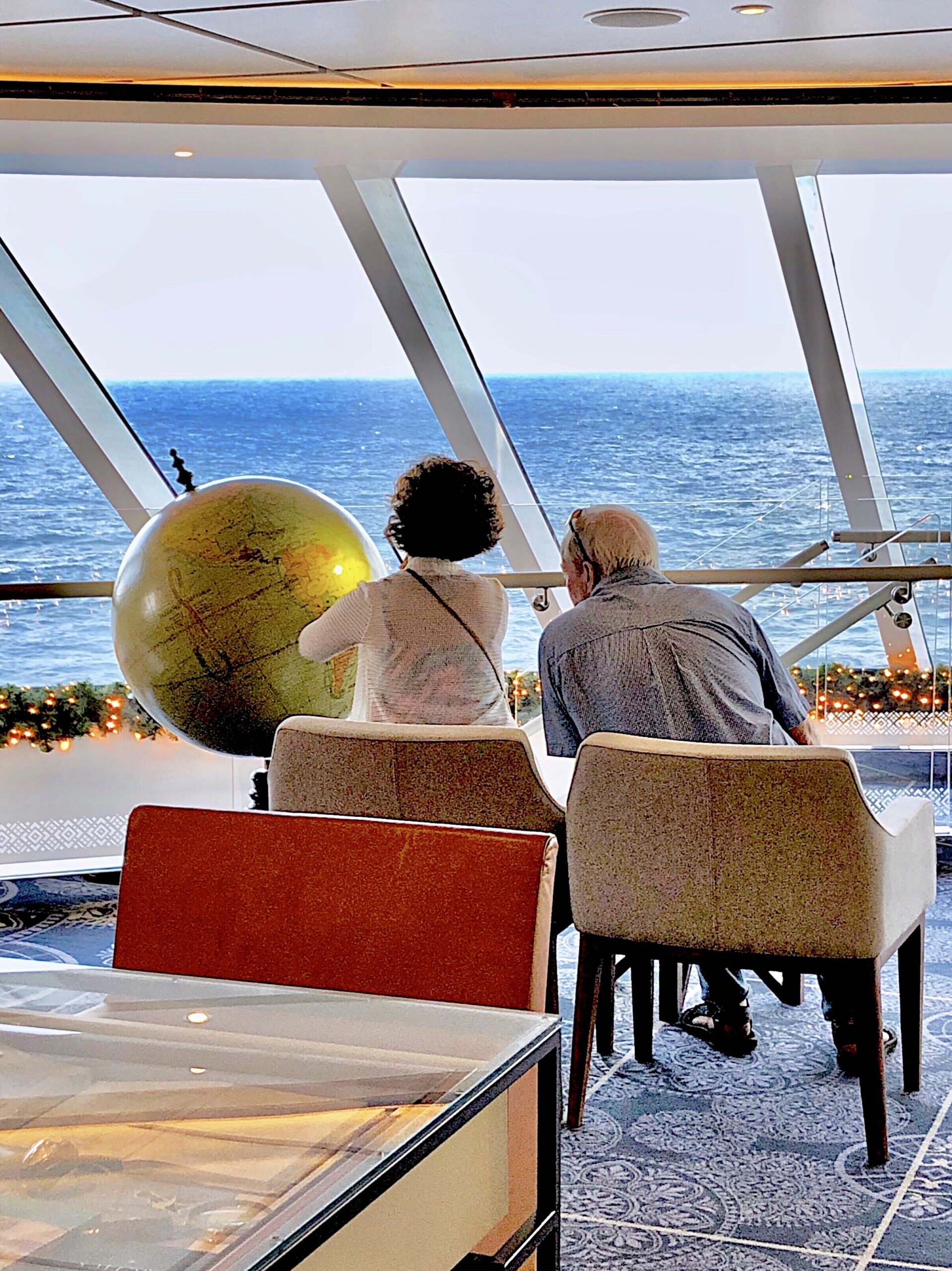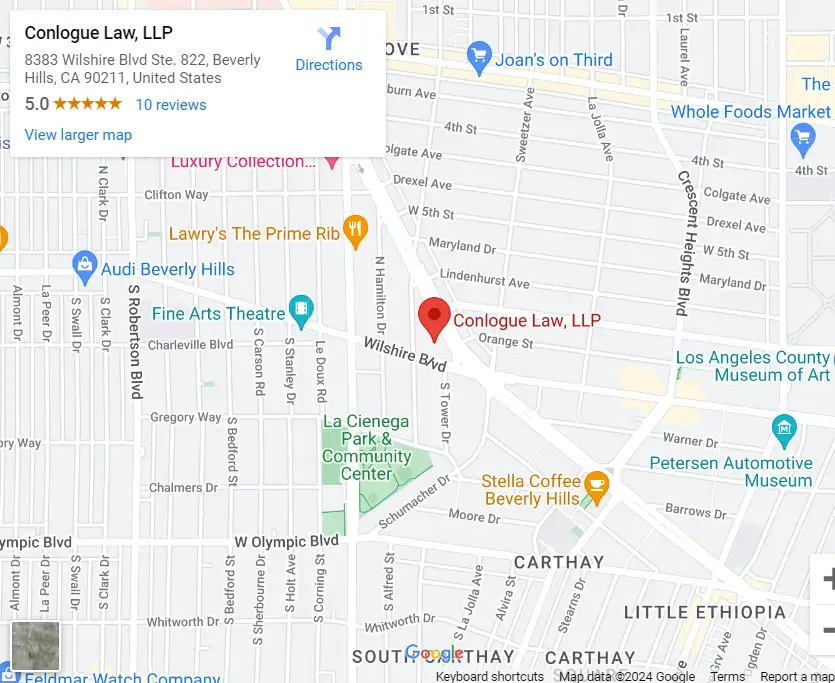How Are Cruise Ships Liable for Accidents Involving the Elderly?
Cruise ships offer exciting vacations for seniors, providing popular and ideal getaways. However, accidents can happen unexpectedly at sea, and compensation may be necessary when they do. In California cruise ship accidents, attorneys can assist elderly victims in seeking justice and fair compensation for their injuries or losses.
To better understand your legal rights and protect your interests while on a California cruise, we encourage you to read our full article. This guide provides key insights to help you make informed decisions and confidently enjoy your maritime adventure. Learn more about the steps you can take to safeguard yourself and what to do if an accident occurs during your cruise vacation.
Quick Summary:
- Cruise ship accidents can have devastating consequences. Cruise ship accidents, while relatively rare, can result in serious injuries or fatalities. These incidents can occur in various locations, including California’s coastal waters. Understanding the potential risks associated with cruise ship travel is important for both passengers and operators.
- Maritime law applies to cruise ship accidents. Accidents occurring in navigable waters are often governed by maritime law. This can potentially limit passenger recovery rights. Cruise lines are generally liable for accidents caused by known or foreseeable unsafe conditions.
- The Jones Act provides protections for injured seamen, allowing them to seek compensation from the ship’s owner or operator. However, this law does not apply to all cruise ship passengers.
- Common Accidents Involving Elderly Passengers: The most common injuries involving elderly passengers include slip and fall since they are more prone to imbalances given age and physical condition; medical emergencies for those with chronic health conditions along with food poisoning and shore excursion accidents from partaking in activities.
- Liability is established under maritime law, requiring the passenger to prove negligence.Key elements include duty of care, breach of duty, causation, and damages. Cruise lines often have contractual terms that may limit their liability or specify where lawsuits can be filed.
- Legal options for elderly passengers include filing personal injury lawsuits that enable them to seek compensation, class action lawsuits for widespread issues, negotiating settlements to placate matters outside of court and understanding the statute of limitations to make filing a case timely to get the right amount needed.
- Compensation for elderly victims are split into two: economic and non economic respectively. Economic damages are quantifiable and include bills and lost wages to name a few. Non-economic pertain to more intangible damages such as loss of enjoyment and suffering.
- Understanding the legal framework for California cruise ship accident claims is vital in this case. Key factors to consider include the statute of limitations, notice requirements, forum selection clauses, and choice of law provisions. These elements can significantly impact your rights and potential recovery. Navigating these complexities requires careful attention to detail and legal knowledge.
What are Cruise Ship Accidents?
Cruise ship accidents can vary from slips and falls to serious incidents like assaults and medical malpractice. Maritime law often governs accidents occurring on navigable waters, potentially limiting passenger recovery rights. Cruise lines are generally liable for accidents caused by known or foreseeable unsafe conditions. The Jones Act protects injured seamen, while common carrier liability applies in non-navigable U.S. waters, requiring cruise lines to take reasonable measures to ensure passenger safety.
What is the Jones Act?
The Jones Act, also known as the Merchant Marine Act of 1920, is a United States federal law that governs maritime commerce. It requires that most goods transported between U.S. ports be carried on U.S.-flagged ships built in U.S. shipyards by U.S. citizens. This requirement has been criticized for artificially inflating shipping costs and limiting competition.
The Jones Act also provides protections for U.S. seamen who are injured on a ship. If a seaman is injured due to the negligence of the ship’s owner or operator, they may be entitled to compensation under the Jones Act.
What are the Common Types of Accidents Involving Elderly Passengers?
Elderly passengers often face unique challenges on the road, making them more susceptible to accidents. Understanding the common types of accidents involving elderly passengers can help promote road safety and reduce the risk of injuries. This information can be valuable for both elderly individuals and their caregivers, as well as for policymakers and transportation professionals.
Slip and Fall Accidents
Slip and fall accidents significantly cause injury among elderly passengers, especially on cruise ships. These accidents often occur due to slippery floors, uneven surfaces, or inadequate lighting. The elderly may have reduced balance and coordination, making them more prone to falls that can result in broken bones, head injuries, or other serious injuries.
Medical Emergencies and Inadequate Care
Medical emergencies are a common concern for elderly passengers, particularly those with chronic health conditions. These emergencies can range from heart attacks and strokes to respiratory problems and sudden illnesses. Ensuring adequate medical care on board is crucial, but delays in treatment or inadequate facilities can exacerbate these emergencies and lead to serious consequences.
Food Poisoning and Illness
Food poisoning is a common health risk for elderly passengers, especially those with weakened immune systems. Contaminated food or improper food handling can lead to illnesses such as gastroenteritis, which can cause severe dehydration and discomfort. Preventive measures like proper food storage and hygiene are essential to minimize the risk of food poisoning.
Shore Excursion Accidents
Shore excursions can highlight a cruise vacation, but they also pose risks for elderly passengers. These accidents can include falls, injuries from activities, or transportation-related accidents. Ensuring proper supervision, appropriate safety measures and clear instructions during shore excursions is vital to protect the well-being of elderly passengers.
How Is Liability Established in California Cruise Ship Accidents?
In California, liability for cruise ship accidents is governed by maritime law, which differs from general state law. To successfully establish liability, a passenger must prove that the cruise line or its employees were negligent. This means that the cruise line failed to exercise reasonable care for the passenger’s safety, resulting in the accident and subsequent injuries.
Key elements to prove negligence include:
- Duty of care: The cruise line owes a duty of care to its passengers to provide a safe environment.
- Breach of duty: The cruise line breached its duty by failing to take reasonable steps to protect the passenger’s safety.
- Causation: The breach of duty directly caused the passenger’s injuries.
- Damages: The passenger suffered damages as a result of the injuries.
It’s important to note that cruise lines often have contractual terms that may limit their liability or specify where lawsuits can be filed. Therefore, it’s crucial to consult with a maritime attorney who understands your specific rights and options.
What are the Legal Options Elderly Passengers Can Take in a California Cruise Ship Accident?
Elderly passengers who experience injuries in a California cruise ship accident have legal options available to them. Understanding the available legal remedies and navigating the claims process is essential for seeking appropriate compensation and justice. By consulting with a maritime attorney, elderly passengers can protect their rights and pursue the proper course of action following a cruise ship accident.
What are the Legal Options for Elderly Victims of California Cruise Ship Accidents?
Cruise ship vacations are often seen as luxurious and relaxing experiences, but accidents can occur, leaving passengers injured. Elderly individuals, in particular, may be more susceptible to injuries due to age-related factors. If you or a loved one has been injured on a California cruise ship, understanding your legal options is crucial.
Filing a Personal Injury Lawsuit
A personal injury lawsuit is a legal action seeking compensation for damages caused by negligence or other wrongful acts. If you have been injured on a cruise ship due to the negligence of the cruise line or its employees, you may be able to file a personal injury lawsuit.
Class Action Lawsuits for Widespread Issues
In cases where multiple passengers are affected by the same issue, such as a widespread outbreak of a contagious disease or a structural defect on the ship, a class action lawsuit may be appropriate. A class action lawsuit allows a group of plaintiffs to file a single lawsuit against a defendant, which can be more efficient and cost-effective.
Negotiating Settlements with Cruise Lines
In some cases, it may be possible to negotiate a settlement with the cruise line without going to trial. A settlement is an agreement between the parties to resolve a dispute outside of court. While settlements can be a quicker and less stressful way to resolve a case, it’s essential to consult with an attorney to ensure you are getting a fair settlement offer.
It’s important to note that the statute of limitations for filing a lawsuit varies by state. Therefore, if you believe you have been injured on a cruise ship, it’s crucial to consult with an attorney as soon as possible.
What Are the Steps to Take After a Cruise Ship Accident
Following a cruise ship accident, it is a must to take immediate steps to ensure protection and evidence preservation. These include gathering information, documentation, and seeking medical attention. Taking these steps makes all the difference in the compensation one can obtain in a California cruise ship accident.
- Seek Immediate Medical Attention: It is essential to prioritize health following a cruise ship accident. If you are injured, seek immediate medical assistance from the ship’s medical staff or a local hospital. Document your injuries and treatment thoroughly, keeping records of all medical examinations, diagnoses, and prescriptions.
- Report the Accident: Notify the ship’s crew about the accident as soon as possible. Provide detailed information about the incident, including the location, time, and any witnesses present. Obtain a copy of the incident report for records and personal injury claims.
- Document the Incident: Take photographs of the accident scene, any injuries, and damaged property. Gather contact information from any witnesses. Keep a detailed journal of events, including your observations, emotions, and any conversations with ship staff or other passengers.
- Consult a Maritime Lawyer: Seek legal advice from a maritime attorney specializing in cruise ship accidents. They can help you understand your rights, assess the potential value of your claim, and guide you through the legal process.
What Compensations are Available for Elderly Victims?
Elderly passengers injured in a cruise ship accident may be entitled to various forms of compensation. These damages can include medical expenses, lost wages, pain and suffering, and other related costs. Understanding the types of damages that can be recovered is important for elderly passengers seeking justice and compensation following a cruise ship accident.
Economic Damages
Economic damages in cruise ship accidents involving the elderly typically refer to the direct financial losses incurred. These can include medical expenses, lost wages, rehabilitation costs, and property damage
- Medical expenses: Hospital bills, doctor’s fees, medication costs, and physical therapy expenses incurred due to injuries sustained in the accident.
- Lost wages: Compensation for income lost as a result of the injury, including time off work for treatment and recovery.
- Rehabilitation costs: Expenses related to physical therapy, occupational therapy, or other rehabilitation services to help the victim regain their independence.
- Property damage: Compensation for damage to personal belongings or assistive devices caused by the accident.
Non-Economic Damages
Non-economic damages, also known as pain and suffering damages, are awarded to compensate for the intangible losses experienced by the victim. These can include physical pain, emotional distress, loss of enjoyment of life, and loss of consortium. While economic damages can be more easily quantified, non-economic damages are often subjective and more difficult to assess.
- Physical pain and suffering: Compensation for the physical pain and discomfort experienced by the victim, including chronic pain or permanent disabilities.
- Emotional distress: Compensation for the emotional trauma and psychological harm caused by the accident, such as anxiety, depression, or post-traumatic stress disorder (PTSD).
- Loss of enjoyment of life: Compensation for the inability to participate in activities or enjoy life as before the accident.
What Are the Factors to Consider in California Cruise Ship Accident Claims?
If you’ve been involved in a cruise ship accident in California, you must first understand the legal framework involved in obtaining claims. From statute of limitations and notice requirements to forum selection clauses and choice of law provisions, navigating these waters can be challenging. This guide provides essential information to help you protect your rights and maximize your potential recovery.
Statute of Limitations and Notice Requirements
When filing a cruise ship accident claim in California, it’s crucial to be aware of the specific statute of limitations and any notice requirements. These deadlines can vary depending on the nature of the claim and the jurisdiction where the accident occurred.
In California, the statute of limitations for cruise ship accidents involving the elderly is one year from the accident. Some cruise ship companies require written notices of intent to file a within claim six months of the injury.
Forum Selection Clauses in Cruise Contracts
Many cruise contracts include forum selection clauses that specify the jurisdiction where any disputes must be resolved. These clauses can significantly impact your options for filing a lawsuit.
- Enforcement of Forum Selection Clauses: Courts generally enforce forum selection clauses unless they are found to be unreasonable or unfair.
- Challenging Forum Selection Clauses: In some cases, it may be possible to challenge a forum selection clause if it is unduly burdensome or unfair to the passenger.
Choice of Law Provisions
Choice of law provisions in cruise contracts determine which laws will govern the dispute. These provisions can also have a significant impact on your claim.
- Applicable Law: The choice of law provision in a cruise contract determines which legal system will govern the dispute. This can significantly impact the outcome of the case, as different laws may have varying rules regarding liability, damages, and other legal issues. Factors such as the location of the accident, the nationality of the cruise line and passengers, and the terms of the contract itself will influence the court’s decision on which law to apply.
- Factors Affecting Choice of Law: Courts consider various factors when determining whether to enforce a choice of law provision, including the parties’ expectations, the connection of the dispute to the chosen law, and the public policy interests at stake.
Find the Best Legal Options for Elderly California Cruise Ship Accident Victims!
Cruise ship accidents can range from minor injuries to fatalities. These accidents can occur in various locations, including California’s coast. In the instance of a California cruise ship accident involving elderly passengers, various legal options ranging from personal injury to wrongful death are present.
If you are an elderly passenger injured in a California cruise ship, our maritime law attorney at Conlogue Law LLP is here to present you with the best option to get compensated for your injuries. Our attorney offers assistance in maritime law along with other vehicular accident cases like car accidents, motorcycle accidents, and truck accidents.
Schedule a free consultation with a maritime lawyer in California for cruise ship accidents and get the best legal option for your case.








